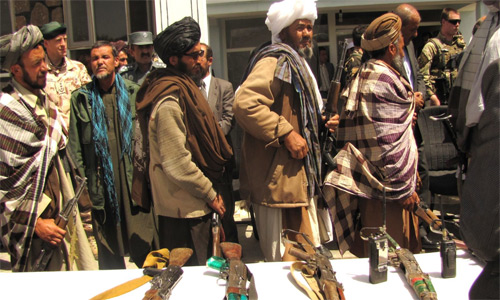Afghans have been fluctuating between hope and fear since negotiations were started between the Taliban and US representatives. On the surface, it seemed that regional stakeholders will put all their weight behind the Afghan peace process, but now their role is reduced. However, the main reason behind the restricted role of regional states is not clear.
Before the start of talks between the Taliban leadership and the United States, all global powers reiterated “Afghan-owned” and “Afghan-led” talks saying that they would support the talks led by the Kabul government. However, the change of “Afghan-owned and led” terms – which denoted a state-centric peace talks – into “intra-Afghan” dialogue “reduce the state to a faction” and sidelined Afghanistan at the table. Meanwhile, “political reconciliation” changed into “political settlement”. For instance, Ambassador Richard Holbrooke, the US Special Representative for Afghanistan and Pakistan, in 2009 prohibited the use of the term political settlement to his team. After appointment of Ambassador Zalmay Khalilzad as the US Special Representative for Afghanistan Reconciliation, the policy has shifted toward “political settlement”. The shift in terminology indicates a shift in the scenarios and approaches of the US and the Kabul government with regard to the Taliban.
Chinese Ambassador to Kabul Wang Yu said on Tuesday that China supported “Afghan-owned and led” peace talks and wanted peace to be realized. He said that he had been interacting with Afghan people to get idea how to work better for the realization of peace. Wang said that “China will not force anybody to make peace” but it seeks consensus. He reiterated China’s full support to Afghan-led talks but added that the peace process was “so complicated”. Wang said peace process was a “platform to be successful” and China made cooperation in this regard. He believed that the active role of regional stakeholders would be productive and urged that all regional states should play essential role in this regard.
I also believe that it would be more productive if the US pave the ground for the inclusion of more regional stakeholders in the Afghan peace process. China is one of the states which have played constructive role regarding the Afghan peace talks in the past and was a member of the Quadrilateral Coordination Group. The significance of regional cooperation in the talks is undeniable. However, their marginalization will put an adverse effect on the process.
It is said that the US and Taliban negotiators are holding unofficial talks in Qatar, this indicates the resumption of peace talks between the two sides.
It is self-explanatory that the peace process has been highly complicated and one is unable to predict the result. To this end, Afghans have held out hope for the fruition of the process but also were fearful of the failure.
Despite the public hope for the start of face-to-face talks between the Kabul government and the Taliban leadership, the Taliban has denied recognizing the government of Afghanistan as a legitimate negotiating partner. Afghans still hope that the US will be able to broker direct talks between Kabul and the Taliban.
Meanwhile, the Taliban refused the offer to participate in the presidential election. The group’s concern for its participation in the election was understandable. That is, there were three main reasons they refused the offer: First, the group claims that the democratic system has been imposed by the western superpower, the US. Tied to this, it also claims that it does not recognize the constitution. The second reason is the Taliban’s “fear of extinction” in elections. Third, “the Taliban’s participation in the elections would ideally mean that they have accepted the present political system including the constitution and laws, which according to them is based on the US counter terrorism policy and invasion.”
The fact is that the Taliban outfit has been highly bargaining for higher price at the table with its US interlocutors refusing any offers from the Kabul government. Since there are three sides in the conflict, i.e. the Taliban, the US, and the Afghan government, the talks will not bear the desired result.
If all regional stakeholders support the process, peace talks between the Taliban and the Kabul administration are likely to be brokered in the near future. The inclusion of Kabul in the talks has been the demand of both Afghan state and nation. Indeed, both global and national consensus should be formed to push the process forward.
Home » Opinion » National and Global Consensus Essential to Peace Talks
National and Global Consensus Essential to Peace Talks
| Hujjatullah Zia

